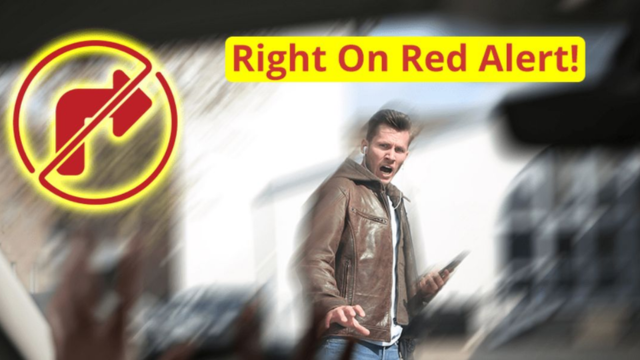There are particular regulations that govern the employment of minors in Montana, just like there are in many other states. The purpose of these rules is to safeguard young workers from potentially dangerous working circumstances while also ensuring that they acquire useful work experience. The minimum age required to legally work in Montana varies from job to job and from the age of the minor to the age of the employment. Certain occupations necessitate the acquisition of permits, while others are limited due to age and safety issues.
The minimum age required to work in Montana
For the majority of jobs in Montana, the minimum age to begin working is fourteen years old. There are, however, exceptional circumstances in which younger children are permitted to work in restricted capacities. These circumstances include family-owned companies, agricultural employment, and certain positions in the entertainment industry. There is a collaborative effort between federal and state labor laws to set criteria that employers are required to adhere to when recruiting children.
Who Is Required to Have a Work Permit?
In the state of Montana, it is not typically necessary for minors to get work permits in order to find employment. Before beginning employment, adolescents in Montana are not required to get formal work permits, in contrast to the situation in certain other states. Instead, it is the responsibility of employers to confirm that they are in compliance with both state and federal labor regulations when they are hiring young workers. Minors under the age of 16 may, however, be required to provide evidence that verifies their age and obtains parental approval in some circumstances.
Jobs That Are Restricted to Minors
Minors are not permitted to work in some occupations in the state of Montana because the legislation considers them to be hazardous or unfit for young workers. Depending on the age group, these restrictions are as follows:
Jobs Restricted for Minors Under 14
- Most non-agricultural jobs
- Manufacturing and construction work
- Warehouse duties
- Any occupation that requires operating machinery
- Public messenger services
Jobs Restricted for Minors Aged 14-15
- Operating motor vehicles or heavy machinery
- Handling hazardous chemicals
- Mining and excavation work
- Logging and sawmill operations
- Meatpacking or processing jobs
- Roofing or working at heights
- Using power-driven tools such as saws and drills
- Working in establishments that serve alcohol (unless in a limited capacity, such as busboys or kitchen helpers)
Jobs Restricted for Minors Aged 16-17
While 16- and 17-year-olds have more work opportunities, some restrictions still apply, including:
- Driving as part of job duties
- Manufacturing explosives or working with hazardous materials
- Operating power-driven woodworking, metal-forming, or bakery machines
- Working in wrecking, demolition, or roofing operations
- Coal mining or other high-risk industrial jobs
Hour Restrictions for Minors
Montana follows federal guidelines regarding work hours for minors, ensuring they balance work with education and rest.
For Minors Aged 14-15:
- Cannot work during school hours
- Limited to 3 hours on school days and 18 hours per week
- Up to 8 hours on non-school days and 40 hours per week during school breaks
- Permitted work hours are between 7 a.m. and 7 p.m. (extended to 9 p.m. from June 1 to Labor Day)
For Minors Aged 16-17:
- No federal restrictions on work hours, but Montana law may limit excessive work schedules that interfere with education
- Cannot work in jobs deemed hazardous by federal or state law
Exemptions and Special Cases
While Montana enforces strict regulations on youth employment, there are exemptions that allow minors to work under special circumstances:
- Agricultural Jobs: Minors of any age can work on farms owned or operated by their parents.
- Entertainment Industry: Minors can work in film, theater, and television with parental consent.
- Family-Owned Businesses: Children can work in businesses owned by their parents, provided the work is non-hazardous.
- Apprenticeships and Student Learner Programs: Some hazardous job restrictions may be waived for minors enrolled in approved vocational training programs.
Employer Responsibilities
Employers in Montana must comply with both federal and state labor laws when hiring minors. Key responsibilities include:
- Ensuring the job is legally permitted for the minor’s age group
- Adhering to work hour restrictions
- Providing a safe and non-hazardous work environment
- Maintaining records verifying the minor’s age
Consequences for Violating Child Labor Laws
Employers who violate Montana’s child labor laws can face serious penalties, including:
- Fines for non-compliance
- Legal action from the state or federal government
- Potential liability if a minor is injured on the job
Conclusion
The state of Montana creates chances for young workers to get experience while simultaneously enforcing labor regulations that prioritize the safety and education of young workers. It is possible for juveniles to work in a wide number of fields; however, there are limits in place to safeguard them from potentially dangerous surroundings. The compliance with the law and the creation of a more secure working environment for young workers can be ensured by having a thorough understanding of the legal requirements, work licenses, and job limits. Maintaining an awareness of Montana’s labor laws is beneficial for the development of a workforce that is both responsible and productive, regardless of whether you are a parent, an employer, or a young worker.


 by
by 



